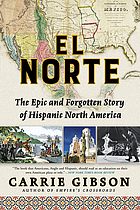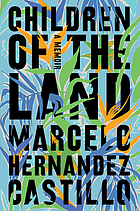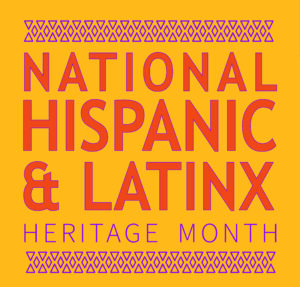Gustavus Library is celebrating National Hispanic Heritage Month! Every year, Americans celebrate National Hispanic Heritage Month to honor the rich history of Hispanic Americans. Come visit us in the library to learn more about Hispanic American history and culture and access the wealth of resources we’ve put together for our display and available throughout the library.
Historical Background
National Hispanic Heritage Month is celebrated every year from September 15 through October 15th. It started as a week-long celebration in 1968, when U.S. President Lyndon B. Johnson signed a bill designating the week starting September 15 as “Hispanic Heritage Week,” and two decades later under President Ronald Reagan it was expanded to a full month. The start date was chosen to coincide with the national independence days of a number of Latin American countries including Costa Rica, Guatemala, Honduras, Nicaragua, and El Salvador (September 15, 1821) and Mexico and Chile (September 18, 1810).
What to Check Out During National Hispanic Heritage Month
The early history of the Spanish in North America is told in Carrie Gibson’s riveting El Norte : the epic and forgotten story of Hispanic North America.
Juan Gonzalez’s Harvest of Empire: A History of Latinos in America tells the story of Latin American immigration to the United States, with an emphasis on U.S. foreign policy and the lives and conditions of those fleeing violence, poverty, and oppression in central America. (It has also been adapted into a feature-length documentary which is also available.)

One of the paradoxes of the term Hispanic is that it refers to a highly diverse group of people who come from wide variety of cultures.
One of the largest groups of Hispanic Americans are those who identify either as Mexican Americans or Chicanos, and you can find numerous historical resources on this group of Hispanic Americans in the U.S. History section under the call number E184.M5, though from September 15 to October 15 you will find many of the newest titles in this section in our National Hispanic Heritage Month display.
Among the resources you will find biographies of major Latino/a civil rights leaders of the 20th century. Labor activists and co-founders of the United Farm Workers Association, Cesar Chavez and Dolores Huerta were two of the most iconic civil rights leaders for Hispanic Americans, you can read about many lesser known figures using works in our Reference Collection like the four volume The Oxford encyclopedia of Latinos and Latinas in the United States.
Gustavus Library also has a number of excellent autobiographies by Mexican American writers, including A House of My Own : stories from my life by Sandra Cisneros (famous for her novella The House on Mango Street), Richard Rodriguez’s acclaimed 1982 memoir Hunger of Memory : the education of Richard Rodriguez, and poet Marcelo Hernandez Castillo’s story of growing up undocumented in California, Children of the Land. While many Mexican American people immigrated to the United States, Tejanos are descendants of the Hispanic people who lived in what’s now the U.S. state of Texas before Texas became a state after the Mexican-American war.
Hispanic Americans of Puerto Rican descent have likewise always been U.S. citizens due to the island’s status as a U.S. territory, though many Puerto Ricans left the island to seek better economic opportunity in places like New York City, and three memoirs that describe growing up as a Puerto Rican in New York City include Edward Rivera’s Family Installments, Esmeralda Santiago’s When I Was a Puerto Rican, and Jesu?s Colo?n’s A Puerto Rican in New York, and other sketches.

Another major group of Hispanic Americans emigrated from Caribbean nations like Cuba and the Dominican Republic. Many Cuban Americans faced exile from their homeland after the Cuban Revolution ended in 1958, and memoirs of exile like Carlos Eire’s Learning to die in Miami : confessions of a refugee boy (2005) and Mirta Ojito’s Finding Man?ana : a memoir of a Cuban exodus are among the works on Cuban American immigration that can be found under the call number E184.C9.
The fourth largest Hispanic group come from El Salvador, where poverty, violence, and corruption have driven large numbers of people to flee and make a long dangerous journey to Mexico and the United States, which can be read about in Parcels : memories of Salvadoran migration by Mike Anastario.
Dominican Americans are the fifth largest group of Hispanic people in the United States, and two of the most famous Dominican American authors today are Elizabeth Acevedo, who won the National Book Award for Young People’s Literature for her young adult novel-in-verse The Poet X, and Junot Diaz, who won the Pulitzer Prize for Fiction for his novel The Brief Wondrous Life of Oscar Wao.
To find more resources on Hispanic American heritage and literature, visit our National Hispanic Heritage Month Display on the library’s main floor.
